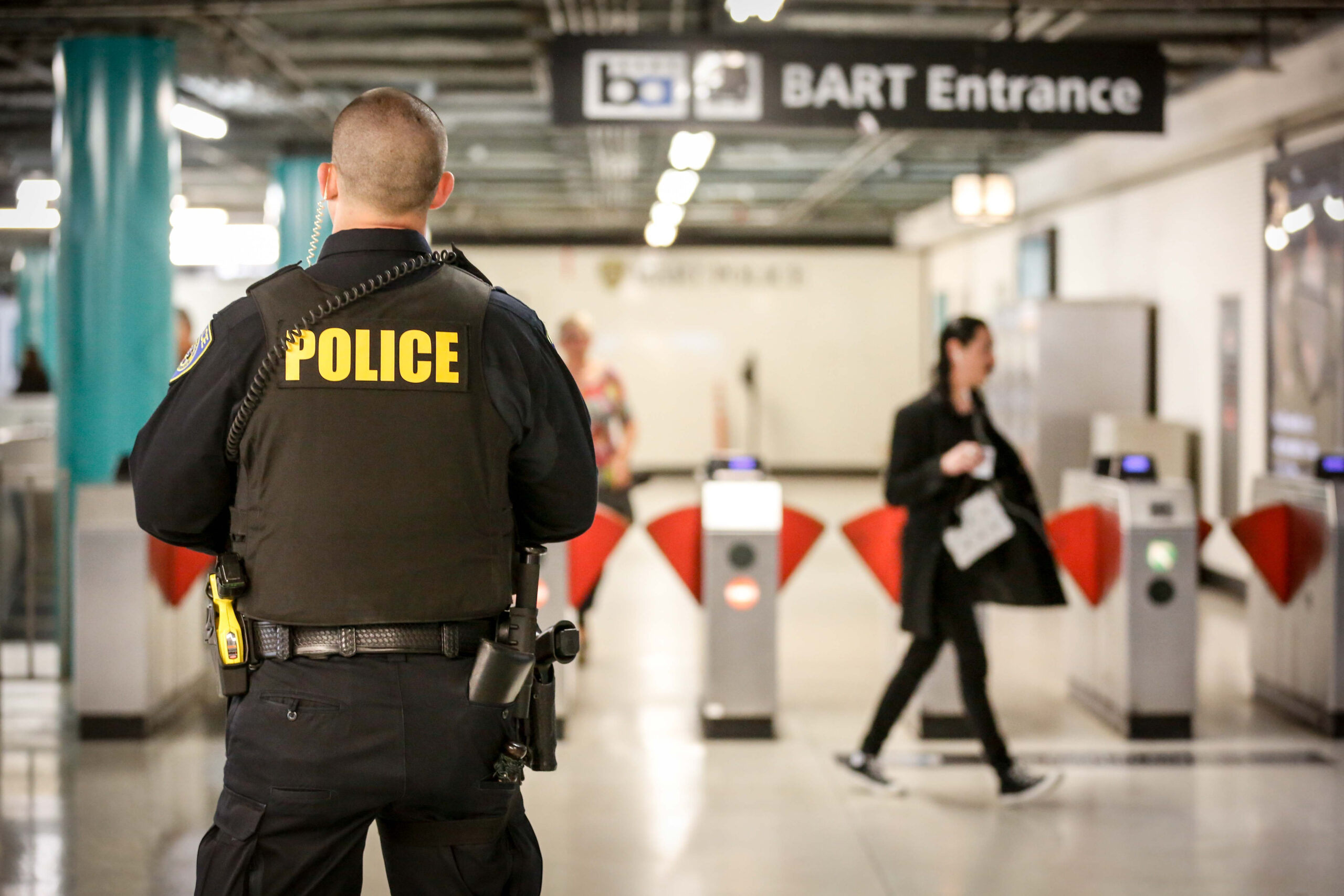BART police officers will get a 20% raise under safety plans approved unanimously Thursday by the transit agency’s Board of Directors.
The cash-strapped transit operator is said to be heading for a “fiscal cliff” due to low ridership numbers. A 2022 satisfaction survey revealed that among the biggest concerns for riders were inadequate police presence, fears about personal security and issues around homeless riders.
The raise is tied to an effort to see 50% more police officers patrolling trains. According to the agreement, officers would sign up twice a year in March and September for shifts. Half of all shifts will be assigned to “train team” patrols, and another 10% will fill floating shifts that BART’s police chief can then reassign based on department needs.
BART had already assigned more officers to patrol trains, but the department still lists more than 20 vacancies, including a permanent chief, three lieutenants, five sergeants and 10 community service officers, among other roles.
The cost, estimated at just over $8.5 million, would include a previously set 2% increase set for July 1 and raise top-tier officer pay rates from $55.12 to $67.38 per hour.
A state budget lifeline could provide the transit operator with enough funds to stay on track until 2026 if approved by Gov. Gavin Newsom. The board also recently approved fare increases and parking fee hikes, starting next January.
The police raise was supported by a letter from the BART police union, which said the largest hurdle in hiring and retain is a 20% pay gap compared to other departments that have raised salaries.
“This market adjustment will go a long way to keeping our employees and recruiting great employees,” BART police union President Shane Reiss said during public comment Thursday before the vote. “This will ensure that we’re able to keep this system safe, and our goal is to make this the safest transit agency in the nation.”
Salaries for BART officers lag behind other comparable Bay Area police forces, according to a BART analysis presented during the meeting.
“We are not making this decision in a vacuum,” BART Board President Janice Li said. “This decision is one of many to make BART a safe, reliable and accessible public transit system.”
